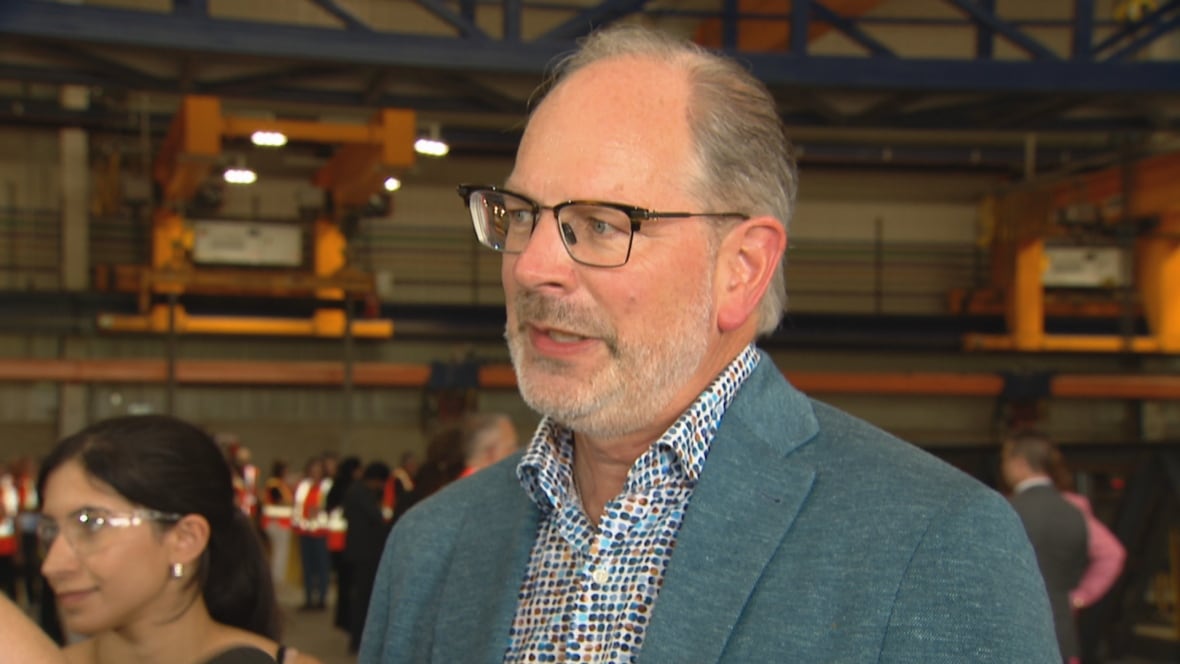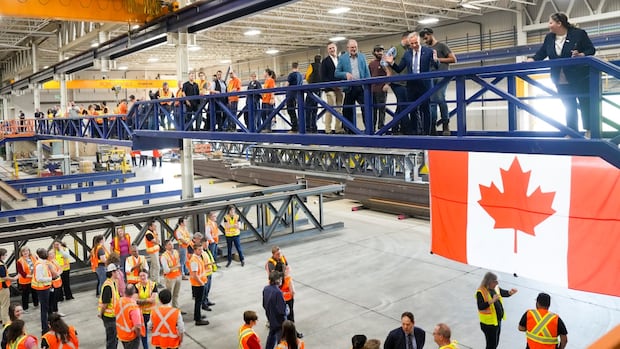Hamilton’s steel manufacturer says he has lost a huge part of his US business as President Donald Trump’s steep tariffs continue.
But the Walters Group has also collected enough work in Canada-in the New Calgary Flames Arena-to avoid lay-offs for the time being, said Walt Koppelaar, Executive Vice President.
On Wednesday, he told journalists that about 70 percent of the Walters group steel manufacturing in the United States were now exported to the United States earlier this year, this amount is almost zero.
“We have to focus well on the work of Canada,” Koppelaar said. “We have things going on to the south of the border that we cannot control. But what we can control is here in Canada. Let’s make Canada the best and we support Canadian steel manufacturers.”
For the first time, Trump set 25 % tariffs for Canada steel and aluminum sectors in March and then rose to 50 % in June. The United States has also collected similar tariffs in many other countries, including China.
Koppelaar described China as a “bad actor” and supports Canada’s attempts to squeeze down.
“When the United States closes the boundaries for certain products, the Canadian boundaries are still open and all the steel made is coming to Canada,” he said.
Prime Minister Mark Carney, who spoke on Wednesday at Hamilton at a steel event, refused to provide details around the negotiations with the United States by saying “seeing” whether Canada sets more tariffs.
The last of Canada’s attempts came earlier on Wednesday, when Koppelaar stood alongside Mark Carney as the Prime Minister circled in the institution and promised to limit the amount of cheap foreign steel entering the country.
Carney said that the new quotas would be valid by the end of the month and its government announced the changes announced in June. The Tariff’s quota system only gives the set product to reach Canada with a lower tariff.
Requires more protection for the home market
Non-free trade agreement countries, including China, steel products their tariff quota will tighten to half 2024. For all imports, a 50 % tariff is set to exceed that level, Carney said.
Countries with free trade agreements with Canada, with the exception of the United States and Mexico, receive a 50 % tariff used to exceed imports in 2024.

It’s a step in the right direction, said Koppelaar, but he and other Canadian steel producers are expecting more changes from the federal government.
When Ottawa financially supports large companies and car manufacturers in Canada, there must be “more springs”, so steel has been purchased at home and not from the United States or China, he said.
It is also important for public infrastructure projects, Kean Loomis, CEO of Kean’s CEO of the Canadian Institute. Hamilton’s resident was also in Carney’s announcement on Wednesday and supports quota tariff measures.
Originally domestic steel companies may make higher offers for contracts, quality is higher than steel made or manufactured in China in countries, and when less problems on the line, Loomis said.
“I believe that Canadian taxpayers are expecting that when they are currently checking their grocery stores in grocery stores and are aware of where they are traveling that when we build a bridge to Canada, we support Canadian companies as this money circulates within our economy.”
The government has made changes federal procurement processOnly projects to companies using Canadian steel companies unless materials are available at home.
